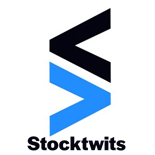For How Long Will the Individual Investor Have Market Control?
Game over, the smart money is now the self-directed investor.
Individual Investors are continuing to stymie investment markets and make even more headway in their newfound leadership role. During the first half of this year, new investment accounts opened by self-directed investors have already equaled the large amount opened through all of 2020. That is more than 10 million new individual trading accounts.
The new money and focus that is different than professional money managers has positively impacted many companies’ stocks like GameStop (GME), AMC Entertainment (AMC), and more recently, GEO Corp (GEO). The new market participants have taken control and have sent the cryptocurrency Dogecoin, which was brought to life as a goof, soaring. The self-directed traders have also formed alliances on social media to powerfully take the other side of trades of hedge funds and portfolio managers who were previously thought of as the “smart money,” and succeed in inflicting losses on them.
What is “Smart Money?”
If you are within a group that is more often correct than incorrect, if your sources which impact your decisions have more power than others in the market, and other market players are watching to see what you are doing to follow, then you are the “smart money.” But the road to becoming the group that is the “smart money” is a different question. The Wall Street Journal recently wrote an article on a similar subject and defined four characteristics. They are if your peers have increasing Trading Volume, quickness to spot or create Trends, they are quick to know a Trends End, they cause Changed Behavior of other market participants.
Trading Volume – In the past, individual investors’ trading activity rarely impacted price movements in the markets. Being impactful began to occur in 2019, when online brokerages moved to commission-free trading. This helped grow activity. The lockdowns that were enacted in response to the pandemic had the effect of bringing new investors online to interact with the markets. This all helped drive self-directed participants’ trading volume numbers to 20% in 2020. This is roughly double the percentage from the previous decade.
Trends
–
Individual investors have been entering some trades in unison – GameStop is the easiest example. GME surged as high as $483 on Jan. 28 to complete a four-day run of 643% . With the help of a few social media groups, individual investors will, en masse, jump into trades and quickly drive the price – surprising others active in the stocks. They can depart just as unsuspectingly.
Trends End – Technology has shortened the lifespan of many trends. Zero-priced commissions and the ability to communicate with other individual investors has allowed for groups to begin and end trends. First-hand early knowledge has now tipped into the hands of the self-directed money that is still befuddling institutions.
Changed Behavior – Institutional short sellers of stocks like GameStop earlier in 2021 endured a good deal of pain and anxiety. The outcome is a new respect for the power of individuals to take control over market pricing mechanisms and have the size behind them to cause the other to react against their original plan.
In the GameStop example, short interest has fallen dramatically. GameStop’s short interest currently hovers around 21%, compared with more than 100% last year. Several other popular individual investor stocks have seen short interest decline substantially.
Take-Away
It is never actually “game-over” in the stock market. The capitalist mindset of most investors just sees new challenges to determine how they could profit. Long considered not-so-smart money by Wall Street, the impact of individual investors has captured the attention of everyone ranging from hedge-fund managers to regulators to executives of companies they are trading. The reason, of course, there is “size” behind them.
Individual investors have poured a net $140.57 billion into the U.S. stock market this year. That is up roughly 33% from the same period a year ago and more than six times the amount during the same stretch in 2019.
Paul Hoffman
Managing Editor, Channelchek
Suggested Reading:

|

|
The Sustainability of Growing Margin Debt
|
Do Robinhood Investors Make Money?
|

|

|
Will Robinhood be Sued for Gamification?
|
How Good are Experts at Predicting the Market?
|
Sources:
Stay up to date. Follow us:
 |
 |
 |
 |
 |
 |
Stay up to date. Follow us:
 |
 |
 |
 |
 |
 |
